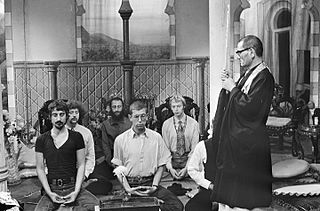A Quote by Tom Holt
Descartes' immortal conclusion cogito ergo sum was recently subjected to destruction testing by a group of graduate researchers at Princeton led by Professors Montjuic and Lauterbrunnen, and now reads, in the Shorter Harvard Orthodoxy:
(a) I think, therefore I am; or
(b) Perhaps I thought, therefore I was; but
(c) These days, I tend to leave that side of things to my wife.
Related Quotes
Only in the 20th century, artists started taking the study of perception in a more humane way. They were thinking about the eye as being an instrument, the whole body as being a visual instrument. That sort of gave way a little bit with Cartesian - the "Cogito ergo sum" argument. It's not, "I think therefore I exist." It's, "I feel therefore I think therefore I exist."
One can ask why the I has to appear in the cogito {Descartes’ argument “I think therefore I am.}, since the cogito, if used rightly, is the awareness of pure consciousness, not directed at any fact or action. In fact the I is not necessary here, since it is never united directly to consciousness. One can even imagine a pure and self-aware consciousness which thinks of itself as impersonal spontaneity.
Is it not lack of faith that leads men to fear the scrutiny of reason? If the destination is doubtful, then the path must be fraught with fear. A robust faith need not fear, for if God exists, then reason cannot help but lead us to Him. 'Cogito, ergo Deus est,' argues St. Augustine, 'I think, therefore God is.'






































